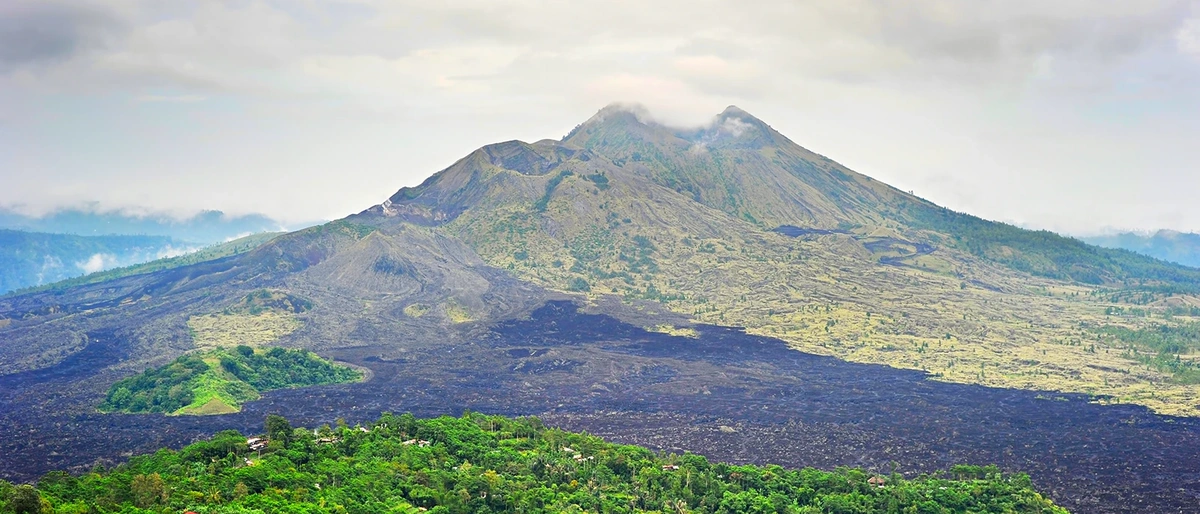The still active small strato-volcano of Mt Batur is situated in North Central Bali, less than an hour’s drive north of Bangli. It is 5,633 feet in height and lies in the heart of two concentric calderas, the larger one containing Danau Batur, the biggest crater lake on the island.
Gunung Batur has erupted more than 20 times during the last 200 years, making it Bali’s most active volcano. Among tourists, it has become an increasingly popular trekking mountain thanks to the fairly straightforward trek to the peak of the central crater, which is free from forest cover, hence providing stunning panoramas.
Set on the edge of the caldera, Pura Danu Batur is the second most important temple (after Pura Besakih) and the supreme water temple in Bali. This is the ceremonial throne for the goddess of the lake, Dewi Danu, who is honored with a tall pagoda-like meru of eleven tiers which is the highest, thus indicating her importance.
The lake is often covered in mist but you can catch breathtaking views from the various vantage points along the rim. There are also several hot springs at the periphery that reach temperatures of up to 135°F, while the rest of the water is somewhat cooler. The caldera is populated and comprises the two main villages of Toya Bungkah and Kedisan. The locals basically depend on agriculture for income; however, tourism is definitely on the advance.
Getting There
Bangli lies 30 miles northeast of Denpasar, which is around nine miles north of Bali’s international airport. There are excellent services from Denpasar’s Kereneng bemo station to Gianyar; here you have to change for Bangli, from where it is another 12 miles to Gunung Batur. Bali’s airport receives flights from all major regional airports.
Need to Know
- What is it? The most active volcano in Bali and a more and more popular trekking mountain.
- When to go? During the dry season from April to October.
- Nearest town: Bangli is 13 miles away from Mt Batur.
- Don’t miss: a visit to the temple of Pura Danu Batur.
- Trivia: Gunung Batur is Bali’s most active volcano.
